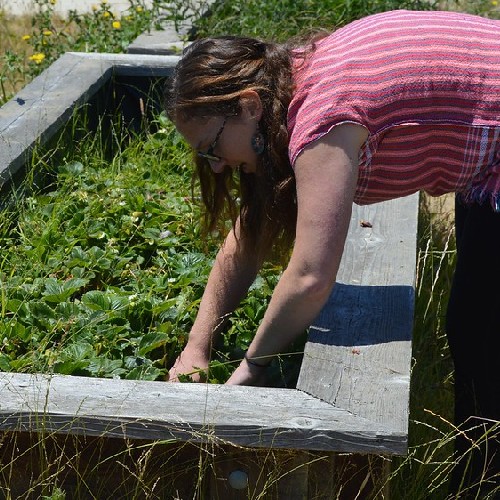
Planting Actual Seeds of Science
By the numbers:
- 2,000 ziplock bags with soil, seeds, popsicle sticks and cups
- 10,000 colorful mini science notebooks
- 6 ten-minute video tours
Looking out the window to sketch a tree, planting seeds to observe germination, or following a video scientist-led tour of a local park -- these are just some of the ways CRS has helped teachers, students and families find joy and exploration outdoors this year.

Throughout the year we’ve provided teachers with thousands of colorful mini science notebooks along with training on how to incorporate scientific observation into regular science investigations so students have the power to notice and wonder wherever they are learning from. More than 75% of teachers reported that using science notebooks and sketching has been a key strategy from before the pandemic that has helped to sustain their science teaching during distance learning.
But kids at home need more than notebooks -- they have needed materials so that robust hands-on learning can continue. CRS partnered with funders and districts to assemble thousands of material kits for teachers to send home with their young learners.
One series of workshops for Richmond teachers focused on plants and ecosystems, and included providing teachers with send-home kits for 1,500 students, with seeds, soil, and more so they could lead experiments with confidence.
The professional development time is valuable to Richmond teachers, according to WCCUSD science coordinator John Iwawaki, because teachers need “to be a part of the process in making students into scientists… to be investigators with students… I really want our kids to notice and wonder and learn those skills that scientists have: collecting evidence, collecting data, analyzing data, even asking questions. That’s the goal I have for myself, our teachers, and for our students.”
In Oakland, CRS coordinated a team of scientists and environmental educators to create short videos for the Oakland Goes Outdoors project aimed at nudging middle schoolers and their families to explore local parks within walking distance of their homes. From tiny insects to towering redwoods, the diverse and friendly scientists leading the video tours encourage students to draw, notice, tally or engage in some family friendly citizen science.
After so many months indoors, students, teachers, and families alike have been eager for “asynchronous” and non-screen time outdoors! Beyond just being fun, these outdoor experiences link with CRS professional development offerings so that teachers can build meaningful learning experiences for their students.